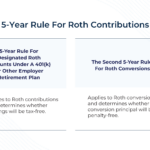Effective investment management requires proper diversification of assets to manage risk and maximize the likelihood of funding client goals. However, the traditional approach for doing so focuses on a client’s investment portfolio alone, or perhaps their personal residence as well, but often ignores their greatest asset: their ability to continue earning income through the fruits of their labor, also known as their “human capital.”
Just as with financial capital, the value of human capital may rise and fall over time. However, the reality is that human capital for some clients is far more volatile than others. Careers like working for the government, or being a tenured professor, produce human capital that exhibits “bond-like” risk and return characteristics, while more corporate and/or entrepreneurial positions are more stock-like (including the fact that they may be outright correlated to the economic cycle and stock market returns).
Accordingly, effective diversification of the client’s entire household balance sheet may entail using financial capital to counterbalance against the risks of human capital; in other words, those with stock-like careers should own more bonds, while those with bond-like careers can afford to own more stocks. Similarly, decisions about savings should recognize that sometimes, investing in human capital can actually produce a greater Return On Investment than saving (even better than buying stocks in a Roth IRA for the long run!). So the next time you’re working through financial planning decisions with your client, remember to consider whether their career and human capital behave more like a stock, or a bond!





